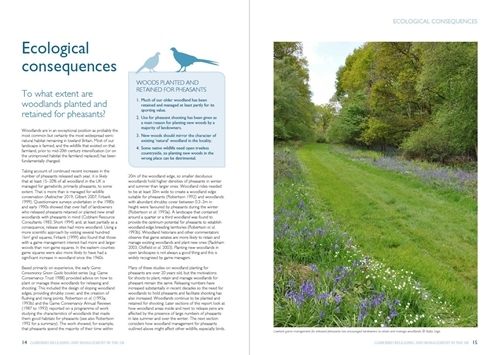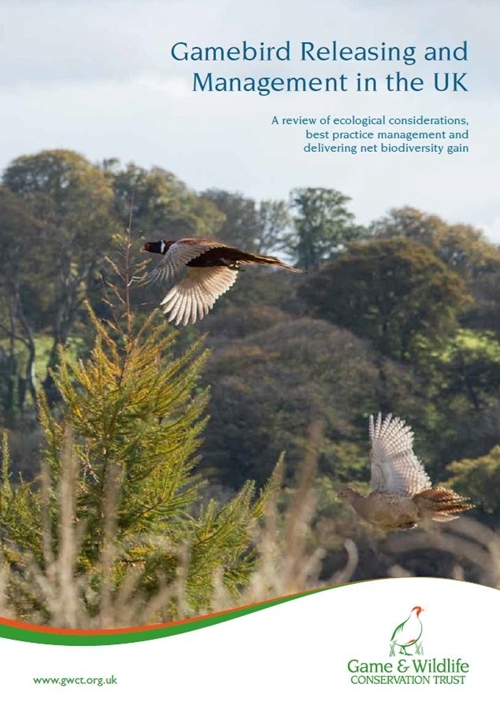
With millions of pheasants and partridges released into the countryside each year, what impact are they having? That’s the question answered in a landmark report from leading conservation charity the Game & Wildlife Conservation Trust (GWCT).
Using over 140 scientific papers and reports as the basis for its findings, the report studies the ecological consequences of released birds and their management on a range of factors – from hedgerows and lichens to invertebrates and songbirds. The 52-page report is freely available to read at www.gwct.org.uk/releasingreport.
As the most common quarry in the UK, pheasants are synonymous with shooting and, for much of the public, that’s where the interest ends. For others, however, the debate on releasing pheasants and partridges for shooting has gained exposure in the past few years.

The authors, Dr Rufus Sage and Dr Roger Draycott, highlight how studies show management for these popular gamebirds can help songbird numbers, supports the planting of hedgerows and can help butterflies and bees to thrive on woodland edges, but also highlight the potential for negative impacts such as disease and damage to soil and invertebrates within release pens and how these can be reduced by following best practice guidelines.
Roger Draycott, Director of Advisory and Education at the GWCT, is hopeful that the report will prompt an open and balanced discussion on releasing and what those involved can do to make more of their efforts.
“Most positive effects, such as the provision of winter food and cover for songbirds, are a consequence of gamebird management activities”, he notes, “while any negative effects such as an impact on ground flora are caused by the released birds themselves. Importantly, some of these negative effects have relatively straightforward management solutions.”
The field-based research work referenced in the report was undertaken at many hundreds of different release-based shoots over several decades and provides a broad overview of what is happening across the UK countryside.
Those looking to improve biodiversity on their shoot are urged to follow the GWCT’s Principles of Sustainable Gamebird Management. These 12 principles were put together in September 2020 after consultation with hundreds of GWCT members, shoot managers and after careful review of internationally agreed guidelines on sustainable use and biodiversity. You can read them at gwct.org.uk/principles.
James Swyer, Press & Publications Manager at the GWCT, comments that “as providers of research and a leading voice in game management, the GWCT is central not only to this debate but also in understanding what is happening on the ground and improving standards. Participants in shooting should be discerning about where they buy their shooting, and all shoots are encouraged to follow our principles. The overall balance of effects in future will depend on how well best practice is adhered to.”
If you would like help in planning your shoot, the GWCT advisory team offers training courses and face-to-face visits in England, Scotland and Wales. To find out more or to book an appointment, simply visit gwct.org.uk/advisory or call 01425 651013.
Notes to editors
The Game & Wildlife Conservation Trust – providing research-led conservation for a thriving countryside. The GWCT is an independent wildlife conservation charity which has carried out scientific research into Britain’s game and wildlife since the 1930s. We advise farmers and landowners on improving wildlife habitats. We employ more than 60 post-doctoral scientists and other research staff with expertise in areas such as birds, insects, mammals, farming, fish and statistics. We undertake our own research as well as projects funded by contract and grant-aid from government and private bodies.
For information, contact:
Eleanor Williams
Telephone: 07592 025476
Email: press@gwct.org.uk